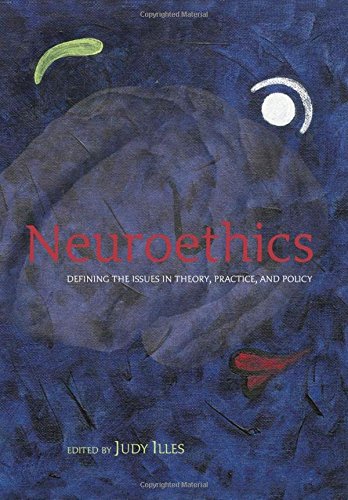
Synopsis
Recent advances in the brain sciences have dramatically improved our understanding of brain function. As we find out more and more about what makes us tick, we must stop and consider the ethical implications of this new found knowledge. Will having a new biology of the brain through imaging make us less responsible for our behavior and lose our free will? Should certain brain scan studies be disallowed on the basis of moral grounds? Why is the media so interested in reporting results of brain imaging studies? What ethical lessons from the past can best inform the future of brain imaging?
These compelling questions and many more are tackled by a distinguished group of contributors to this volume on neuroethics. The wide range of disciplinary backgrounds that the authors represent, from neuroscience, bioethics and philosophy, to law, social and health care policy, education, religion and film, allow for profoundly insightful and provocative answers to these questions, and open up the door to a host of new ones. The contributions highlight the timeliness of modern neuroethics today, and assure the longevity and importance of neuroethics for generations to come.
Les informations fournies dans la section « Synopsis » peuvent faire référence à une autre édition de ce titre.
Présentation de l'éditeur
Recent advances in the brain sciences have dramatically improved our understanding of brain function. As we find out more and more about what makes us tick, we must stop and consider the ethical implications of this new found knowledge. Will having a new biology of the brain through imaging make us less responsible for our behavior and lose our free will? Should certain brain scan studies be disallowed on the basis of moral grounds? Why is the media so interested in reporting results of brain imaging studies? What ethical lessons from the past can best inform the future of brain imaging? These compelling questions and many more are tackled by a distinguished group of contributors to this volume on neuroethics. The wide range of disciplinary backgrounds that the authors represent, from neuroscience, bioethics and philosophy, to law, social and health care policy, education, religion and film, allow for profoundly insightful and provocative answers to these questions, and open up the door to a host of new ones. The contributions highlight the timeliness of modern neuroethics today, and assure the longevity and importance of neuroethics for generations to come.
Revue de presse
This book...helps to define the field, as well as demonstrating the importance and relevance of this area to neuroscience. ... overall this book is excellent and should be regarded as essential reading for neuroscientists who should educate themselves in this important and newly emerging field. (Psychological Medicine,Vol 37,)
Illes's book is a very firm foundation for the specialty of neuroethics, and I recommend it very highly. (The Lancet Neurology, Vol 5)
Les informations fournies dans la section « A propos du livre » peuvent faire référence à une autre édition de ce titre.
Autres éditions populaires du même titre
Résultats de recherche pour Neuroethics: Defining the Issues in Theory, Practice...
Neuroethics: Defining the issues in theory, practice, and policy (eng)
Vendeur : Brook Bookstore On Demand, Napoli, NA, Italie
Etat : new. Questo è un articolo print on demand. N° de réf. du vendeur 37dbc3fd34f18f19cca08567358db7be
Acheter neuf
Quantité disponible : Plus de 20 disponibles
Neuroethics
Vendeur : moluna, Greven, Allemagne
Einband - fest (Hardcover). Etat : New. Dieser Artikel ist ein Print on Demand Artikel und wird nach Ihrer Bestellung fuer Sie gedruckt. Tells us about the field of nueroethics. This book talks about what makes monitoring and manipulating the human brain so ethically challenging and will having a new biology of the brain through imaging make us less responsible for our behavior and lose our. N° de réf. du vendeur 594410414
Acheter neuf
Quantité disponible : Plus de 20 disponibles

